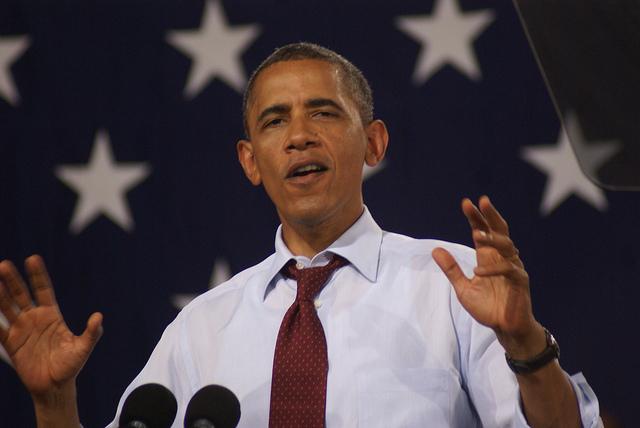Barack Obama’s legacy of changes as President of the United States
During 2012, Obama ran for, and won, the Presidential election for the second time.
Barack Obama, the first African-American president of the United States, held office for two terms filled with political, economic, and military turmoil. During these eight years, Obama changed the nation. He promised growth, equality, liberty, and hope, but whether or not he delivered these is up for debate.
Barely a month into his presidency, Obama enacted the American Recovery and Reinvestment Act, which funneled nearly $800 billion into the economy, primarily healthcare, alternative energy, transportation, and tax cuts. Though improvement was slow, the ARRA created job growth and was geared to dig the economy out of the worst recession since the Great Depression. However, to many this act was unnecessary spending, or even a complete mistake, and as many as 3 out of 4 Americans believed that much of the funding was wasted. Several economic studies have been done, with mixed results.
Economic policies would continue to define Obama’s presidency, particularly in bailouts. Following a federal bailout by Bush of General Motors and Chrysler, Obama aided the regrowth of the auto industry in America, which has saved 1.5 million jobs and reached record sales in 2015. He gave about $62 billion in federal funds to the industry, of which a significant amount is not expected to be paid back. In a fairly unpopular move, Obama bailed out the banks with TARP, or the Troubled Asset Relief Program.
Perhaps the most famous legislation passed during Obama’s presidency, the Patient Protection and Affordable Care Act, often called Obamacare, was enacted in 2010. One of the ACA’s goals was to provide the means for acquiring health insurance to all American citizens, but soon fell under fire, and many have questioned the constitutionality of the federal government requiring Americans to have health insurance or pay a penalty. It also included clauses to revitalize and improve the healthcare system, including treatments of chronic illnesses. For a variety of reasons, the ACA has been a target of many politicians, and a repeal movement has already begun.
Obama’s presidency was also marked by human rights developments. In 2009, the Hate Crimes Prevention Act was signed into law, criminalizing harming someone based upon their gender, race, sexual orientation, disability, etc. Under Obama, the Don’t Ask, Don’t Tell policy was repealed in 2010, enabling gay people to serve in the United States Military; later, Secretary of Defense Ash Carter ended the ban on transgender service members. Obama also established the first national monument designated to LGBT rights, around the Stonewall Inn where the Stonewall riots took place.
Environmental protection and alternative energy investments also characterized Obama’s presidency. By creating 29 national monuments, including the first marine national monument in the Atlantic, Obama protected over 550 million acres of land and water, more than any other president. These monuments protect Native American sites, endemic species’ habitats, and marine life. The ARRA provided around $90 billion in investment and tax incentives, in addition to $150 billion for private and non-federal energy investment. Obama also worked with the USDA to provide $850 million in funding for small agricultural businesses to develop sustainability at a local level.
All of Obama’s choices have been met with varying amounts of criticism and acclaim, but undeniably he has left a legacy from his time in office. For more information, visit the White House Record site.
Your donation will help support The Lambert Post, Lambert High Schools student-run newspaper! Your contribution will allow us to purchase equipment and cover website hosting costs.










